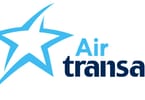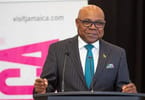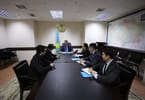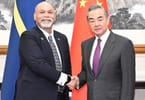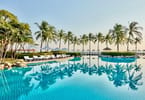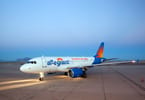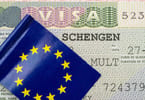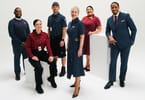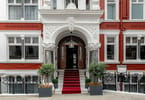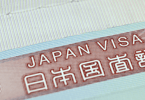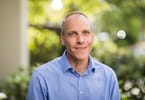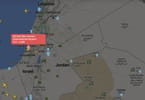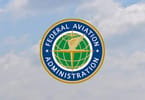You’d think that with a team of lawyers and PR advisors currently working hard to combat allegations of doping in what is shaping up to be one of the most high profile investigations into drug abuse in sport ever seen, the last thing Lance Armstrong needs would be a battle on another front.
Well, think again. It’s perhaps just as well that the RadioShack rider has announced that he’s taken part in his last Tour de France after he managed yesterday to insult a large chunk of the French hotel sector.
More specifically, he laid into those establishments used to put up cyclists overnight between stages of the Tour de France, describing them as “horrible,” according to a report on the Culture Map Houston website.
Armstrong had been engaged as a keynote speaker at yesterday’s closing session of the National Business Travel Association’s annual convention, held this year in Houston, Texas.
Following a stock speech in which Armstrong spoke of his battle against cancer, sporting achievements and the work of his Livestrong charity, the moderator, with a view to getting the cyclist to engage with the trade audience during a Q&A session, asked him about his experiences of travel.
After all, here was a multimillionaire, internationally famous sportsman who also heads up a major charity and does his fair share of travelling on business, who was also collecting what one imagines would have been a decent fee for his appearance.
Not for Armstrong, however, a description of his endorsement of private jet share business FlexJet, or his thoughts on reviews of luxury hotels that appear on the Livestrong website; instead, he laid into the French.
“Most of my travel — at least in Europe — was in France, staying in these … You’re competing in the biggest race in the world and you’re stuck staying in these horrible hotels,” he said. Quickly, he added: “There are no French hotel owners in here, are there?”
If Armstrong expected the audience to laugh at that remark, he was wrong. In fact, the woman moderating the session who had put the question to him happens to work for a major French hotel chain.
Gamely, she volunteered, “”I’m going to have to disagree,” and even offered to put him up in a top-notch hotel next time he visits France.
That gesture may have been meant as an olive branch – although if anything, it should perhaps have been Armstrong apologising to his host – but the cyclist failed to grasp it, and reportedly went on to reel off the names of the hotels that hadn’t lived up to his standards.
Although it wasn’t reported which hotels in particular Armstrong had issues with, there’s a fair chance that one of the chains owned by France-based hotelier Accor, such as Mercure, Ibis, Formule 1 or Novotel, would have figured; not only is the company, which has 4,000 hotels worldwide, nearly a quarter of them in the United States, the biggest hotel operator in France, its Etap brand also acts as an official supplier to the Tour with an ad featuring in the pre-race publicity caravan.
Given that players participating at events such as the FIFA Wolrd Cup stay in luxurious resort hotels, it may come as a surprise that cycling teams with bigger budgets don’t try to book their riders into the best-appointed hotels available.
However, Article 9 of the Tour de France rules stipulates that those taking part in the race and their team managers must sleep and take their meals “in the premises designated for this purpose by the organisation, to the exclusion of any other.”
And with nearly 200 riders starting the race, as well as team support staff and other essential race crew – not to mention a huge media presence and fans who prefer not to go the camping or motorhome route – local hoteliers come under severe capacity problems during the Tour.
Race organisers ASO, who clearly know the route before anyone else does, are able to plan accordingly, but even then the pressure is particularly felt in more remote, rural or mountain locations where infrastructure is lacking in the first place and the team hotel may be nowhere near the stage finish or the start of the following day’s racing.
ASO does, however, seek to ensure an even spread of quality of hotel throughout the race so that each team gets its fair share of the best establishments available as well as some less salubrious overnight stays.
Even then, there is scope for teams to make things as comfortable as possible for their riders, since for a professional sportsman taking part in what many see as the most grueling event in the sporting calendar, a good night’s sleep is essential.
That’s why Team Sky, very much in keeping with its aggregation of marginal gains philosophy, even brought its own beds, duvets and pillows along to await its riders at the team hotel each evening during this year’s race. We’ll let you make your own mind up about how much of a difference that made.
After yesterday’s speech, as Armstrong refused to answer questions from reporters regarding the ongoing doping investigation, around half a dozen delegates to the conference hung around near him, a far cry from the crowds that accompanied him during his heyday.
One person he did speak to – an attendee at the conference who happened to be an Armstrong fan and was appropriately dressed in yellow – described the cyclist as “an inspiration” but admitted that even he wasn’t sure any more about whether the Texan had ridden clean throughout his career.
The delegate, Peter Murao from Los Angeles, said afterwards: “The truth is the truth. I don’t know whether he did it or not. But there’s a lot of people talking … One way or the other, the truth will come out eventually. Even if he was on something, it doesn’t take away from everything he accomplished. He’s still an amazing story.”
WHAT TO TAKE AWAY FROM THIS ARTICLE:
- Following a stock speech in which Armstrong spoke of his battle against cancer, sporting achievements and the work of his Livestrong charity, the moderator, with a view to getting the cyclist to engage with the trade audience during a Q&A session, asked him about his experiences of travel.
- Not only is the company, which has 4,000 hotels worldwide, nearly a quarter of them in the United States, the biggest hotel operator in France, its Etap brand also acts as an official supplier to the Tour with an ad featuring in the pre-race publicity caravan.
- You'd think that with a team of lawyers and PR advisors currently working hard to combat allegations of doping in what is shaping up to be one of the most high profile investigations into drug abuse in sport ever seen, the last thing Lance Armstrong needs would be a battle on another front.






